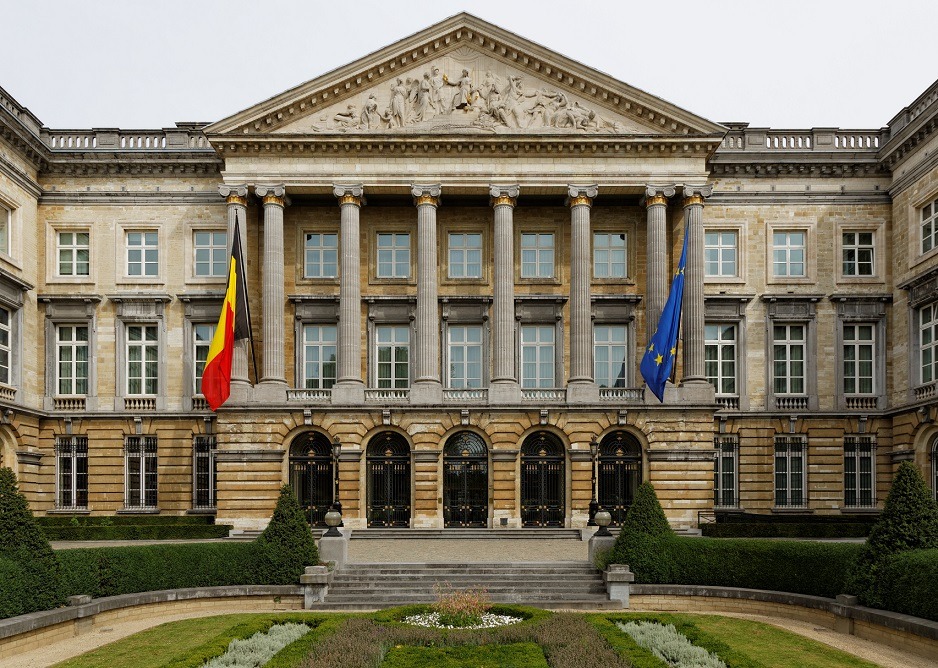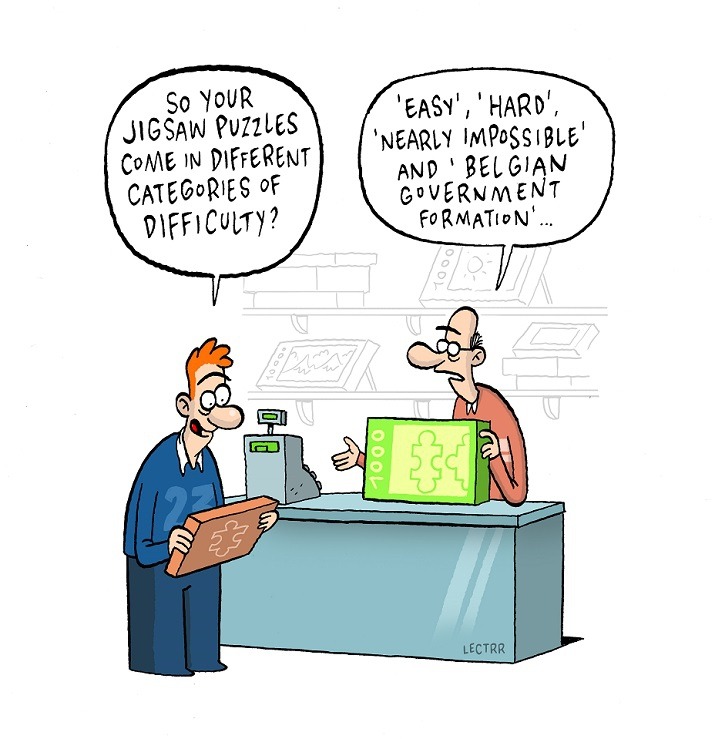Belgium may not have an elected federal government at the moment, but you would be forgiven for not knowing that. The country appears to be ticking along just fine. Belgium is a world leader for so many things and not just in the realms of beer and chocolate. The Kingdom of the Belgians set up a record for having no elected federal government, beating countries like Spain and Iraq. And even if Belgium is not on a par with Somalia, which had a period of over 15 years without a central government, it nonetheless notched up a respectible 589 days back in 2010-11.
Many at home and abroad look back favourably on that period without a federal government, as the country outperformed other euro economies in the midst of the economic crisis. The lack of federal government meant Belgium did not make any drastic budgetary cuts at a time when most of its eurozone partners, including France, Germany, Italy and Spain, were busy cutting the public purse. And Belgium's regional and community governments continued working with few problems.
Without an elected government, Belgium can be effective. Take Brexit. Parliament will pass new emergency laws to meet the challenges posed by the UK jumping off the EU cliff. Hundreds of new customs, food inspection and other officials will be employed to handle trade with the UK. New laws will also try to deal with any chaos caused in a no-deal Brexit world by UK trains, airplanes and passengers.
Divisions and obstacles
But the clock does tick on with no clear stop-date. Since 21 December 2018, Belgium has had no elected federal government. Although the country will vote again on 26 May, formation of a new government usually takes months as parties haggle over positions and policies. On top of the traditional ideological differences between right and left, Belgium must walk a tightrope between French and Dutch speakers, not to forget its 77,000-strong German-speaking region.
The animosity, mistrust and calculated self-seeking party interest which led to the fall of the federal government headed by Charles Michel, from the centre-right French-speaking liberal Mouvement Républicain (MR), will make it difficult to quickly form a government. The Flemish nationalist Nationale Vlaamse Alliantie (N-VA) formally pulled the plug on Michel's federal government. But Belgians soon forget and the N-VA is set once again to capture the most votes and seats in Flanders, almost a third, if recent opinion polls are to be believed.

Back in 2010-11, Belgium infamously went through a period 589 days with no elected federal government. Many are now worried about a déjà vu as the country has been without a government since 21 December 2018. And although Belgium will vote again on 26 May, formation of a new government usually takes several months due to the many competing geographic and language specific interests within the country.
N-VA party leader and Antwerp mayor Bart De Wever now wants to become president of the Flemish region. But keeping its leading position on the right has forced the N-VA to make tough choices to prevent the far-right Vlaams Belang (VB) from stealing its electorate. One rightwing candidate to watch is Dries Van Langenhove, founder of Schild en Vrienden, (or Shield and Friend in Dutch).
The far-right youth organisation and Van Langenhove himself are currently being investigated for racist, antisemitic messages, as well as glorifying violence. If Van Langenhove succeeds as an "independent" candidate, leading the far-right Vlaams Belang electoral list outside Brussels, he will enjoy parliamentary immunity, at least for a while.
Flanders' traditional establishment parties, the centre-right Christian Democrats (CD&V) and socialdemocrats (sp.a), are unlikely to regain their former stature. The liberals (Open VLD), N-VA and greens (Groen) have long been nibbling away at their electorate.
French-speakers, too, face tough electoral choices. Like all top politicians, caretaker prime minister Charles Michel, from the liberal MR party, appears to be eyeing various careers options. Officially, Michel wants to head up another federal government. But realistically, he is also looking at a seat in the European Parliament, or better still, a juicy post as an EU commissioner. But the French-speaking liberals will have to tally more votes than the socialist PS. And especially in Brussels, the French-speaking Greens are likely to put in as strong a showing as the liberals. This could all disqualify Michel from taking any prize positions.
Elections in May 2019
Forming a new government after the elections in May will be exceptionally difficult. After putting out feelers among the parties, King Philip appoints a formateur — usually the leader of the largest party or at least the party able to form a possible coalition. This is then followed by further fine-tuning until a coalition government programme can be drawn up. But finding agreement on what the new government's programme will be is difficult not just on socio-economic points but also on the question of whether to give even more powers to Belgium's regions and linguistic communities. And this is without considering the lengthy horsetrading over top positions and federal handouts.
To make matters worse, Jan Jambon, the N-VA's candidate to become federal prime minister, is proclaiming that if the elections see Wallonia move to the far-left, then further constitutional reform and federalisation is the only logical step. Jambon also stresses how important the N-VA is to any possible agreement. "Nobody can do without us in Flanders, if we get 30 percent. And it's also difficult to govern without us at the federal level," N-VA's Jan Jambon told financial daily De Tijd.
Forming a new federal government will also be difficult for French-speaking politicians. And the leader of Belgium's French-speaking socialists Elio Di Rupo goes so far as to say that it would be unsuitable, even unnegotiable, for N-VA to provide the prime minister. "A separatist as Belgian prime minister is unacceptable," Di Rupo has told French-speaking journalists.
Whatever happens on 26 May, Belgium will face months without a federal government.
| You can vote too On 26 May 2019, EU citizens over 18, formally registered as living in Belgium, will also be able to vote for the European Parliament elections. Belgium, though, makes it very difficult. You will need to register before 28 February. This requires surfing to www.europeanelections.belgium.be and downloading the co-called C1 form. The document can be completed and signed electronically if you have an e-card reader. Alternatively, you can take time off to visit and sign the form at your local commune. Beware! If you register and do not vote, you can be fined. Belgium was the first country in the world to introduce compulsory voting (for men) back in 1893. Today Belgium is still up there alongside North Korea and some 20 other countries enforcing compulsory voting including: Argentina, Australia, Nauru and Ecuador as well as Liechtenstein and Luxembourg in Europe. |
By Dafydd ab Iago

